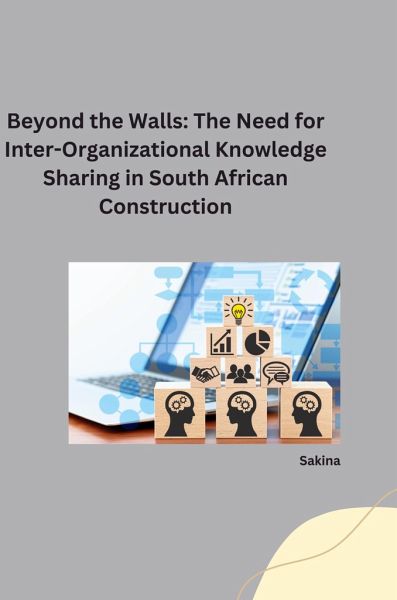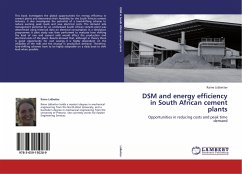
: Beyond the Walls: The Need for Inter-Organizational Knowledge Sharing in South African Construction
Versandkostenfrei!
Versandfertig in 6-10 Tagen
28,15 €
inkl. MwSt.

PAYBACK Punkte
0 °P sammeln!
The maturity of a KM strategy is a critical component of its effectiveness (Maqsood, Finegan and Walker, 2006). Kruger and Snyman (2007) broke down KM maturity into 7 levels with the 6th level of maturity stipulating that an organisation was able to extend its KM strategy beyond its organisational boundaries. It is from this 6th stage of KM maturity that many academics, researches and KM practi-tioners believe that the real value of KM can be achieved as the potential value of KM is maximised due to the increased availability of knowledge to be entered into the organisations KM strategy (Orang...
The maturity of a KM strategy is a critical component of its effectiveness (Maqsood, Finegan and Walker, 2006). Kruger and Snyman (2007) broke down KM maturity into 7 levels with the 6th level of maturity stipulating that an organisation was able to extend its KM strategy beyond its organisational boundaries. It is from this 6th stage of KM maturity that many academics, researches and KM practi-tioners believe that the real value of KM can be achieved as the potential value of KM is maximised due to the increased availability of knowledge to be entered into the organisations KM strategy (Orange, Burke and Boam, 2000; Maqsood, Finegan and Walker, 2006; Kruger and Johnson, 2009; Rezgui, Hopfe and Vorakulpipat, 2010). With the implementation of mature KM strategies by multiple organisa-tions through several continuous improvement cycles the performance of the sector as a whole also has the potential to be uplifted (Orange, Burke and Boam, 2000). Kruger and Johnson (2009) found that the maturity of KM in South African construction organisations was being stunted as the KM strat-egies did not extend beyond organisational boundary. Therefore, KM in the sector is not as successful as it was hoped it would be.














